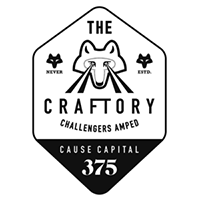Price. Boldly.
Why the future lies in saying goodbye to discounts and hello to charging unapologetically.
Mankind’s nature is both conservative and incrementalist. We fear the consequence of change, and we venture out of our comfort zone with endearing timidity, one small step at a time. We might admire the boldness of “damn the torpedoes” trailblazers – but, by definition, that admiration is projected from the angle of our own evolutionary cautiousness, and instinctive preference for staying with the pack. It made survival sense over the millennia to stick to the foodstuffs we knew weren’t deadly, and away from the hunting grounds where dragons roamed. And so it goes with pricing: entrepreneurial mankind’s instinct is to peg their prices to those of the Big Brand leaders. It’s a sensible, low-risk low-return strategy for me-toos. For challenger brands, however, looking for safety in conformity is deadly wrong.
That’s because challenger brands don’t actually compete with their traditional FMCG counterparts. Consumer motivation for buying conventional Big Brand products stems from simple functional needs: to clean your kitchen surfaces, wash your clothes, or quench your thirst. Conventional FMCG brands meet those functional needs with products that deliver reliable and unsurprising quality in an efficient way. The consumers of challenger brands, in contrast, aren’t driven by functional needs, but by greater causes: not to impact the planet, for example, or to play their part for a fairer society, or to achieve good health. Challenger brands meet those greater causes with products that deliver features (rejecting the use of fossil fuels, for example, or delivering wholesome nutrition without animal proteins) in products of unquestionable quality, in a trustworthy way. Or, said plainly: challenger brands are to their Big Business counterparts what apples are to Kumquats. And that, in turn, means following the lead brand’s pricing is a missed opportunity.
A recent report by McKinsey & Company highlighted data that US consumers on average are willing to pay a 30% premium for the craft version of a product compared to the conventional FMCG brand leader in the category. That’s striking empirical evidence that the “brand tax premium” of FMCG market leaders simply doesn’t apply against challenger brand alternatives. And it means that as the CEO of a fledgling challenger brand, the best thing you can do is stay clear of all the discounting and timid pricing that is the hallmark of a me-too follower, and instead price fully and boldly, signalling confidently to consumers that your brand is the cause-driven challenger alternative of unquestionable quality and provenance.
Of course, some might ask whether opting for premium pricing defeats the purpose of mission-driven challengers out to improve their categories, our society, or the planet. Ought pricing not to be as democratic as possible, to allow everyone to participate? Perhaps counter-intuitively, the answer is almost invariably no. By virtue of their mission, challenger products are more expensive to manufacture and distribute: natural ingredients, plastic alternatives, the lack of preservatives, ethical supply chains – they all add a substantial whack to the cost line compared to the corner-cutting, efficiency-optimised FMCG alternatives. So challengers can’t, and shouldn’t, compete on that basis. Premium pricing guarantees the delivery of their promised cause – and moreover it allows for profits to be ploughed back into growing the business further, to multiply their impact from thousands to millions of consumers.
So take heart, challenger CEOs: The Craftory’s advice is that clarity and growth lie well away from the beaten path of pricing conformity. Put simply: if you’re a better-for-you-and-the-planet organic coconut-oil based, sugar-free alternative to evil palm-oil-and-soya-lecithin Nutella, why on earth price yourself to within a country mile of them?
Ernesto Schmitt is co-founder at The Craftory, the brand-new counter-corporate anti-VC on a $300M mission to back the world's boldest insurgent challenger brands in the consumer goods space.


